Sodium hypochlorite is a commonly used disinfectant in various industries, including water treatment, sanitation, and the food industry. The selection of suitable materials for sodium hypochlorite transfer pumps is crucial to ensure the safety and stability of the transfer process. This article will discuss the material selection for sodium hypochlorite transfer pumps and highlight the key considerations that influence the selection.
I. Significance of Material Selection:
Given the corrosive nature of sodium hypochlorite, choosing the right pump materials is of paramount importance. Suitable materials can provide excellent corrosion resistance, ensuring the safety and reliability of the transfer process while reducing maintenance and replacement costs.
II. Key Considerations:
1.Corrosiveness: The corrosiveness of sodium hypochlorite is the primary consideration when selecting pump materials. Depending on the concentration and temperature of sodium hypochlorite, materials with good corrosion resistance, such as stainless steel (316L) and plastics (polypropylene, polytetrafluoroethylene), should be chosen.
2.Temperature: Sodium hypochlorite transfer pumps generate heat during the transfer process. Therefore, the temperature of the transferred liquid must be considered. Different materials have varying temperature resistance capabilities, and it is essential to select materials that can withstand the expected temperature, especially high-temperature-resistant materials.
3.Pressure: Transfer pumps need to withstand a certain level of pressure. Hence, materials capable of handling the anticipated working pressure should be selected. Common material choices include stainless steel and cast iron.
4.Fluid Characteristics: Sodium hypochlorite has a certain viscosity and may contain particulate matter. Therefore, the pump's ability to handle high viscosity and resistance to wear caused by particles should be taken into account. Suitable materials include high-strength polymers (polyurethane, polyether ketone) and wear-resistant metals (high-chromium cast iron, high-nickel alloys).
5.Economic Considerations: When selecting pump materials, the cost and service life should be considered holistically. Materials with high corrosion resistance tend to be more expensive but offer longer service life, making them more cost-effective in the long run.
III. Commonly Used Materials:
Based on the aforementioned considerations, common materials for sodium hypochlorite transfer pumps include:
1.Stainless Steel (316L): Offers excellent corrosion resistance and high-temperature tolerance, suitable for most sodium hypochlorite transfer applications.
Polypropylene: Provides good corrosion resistance at a lower cost, suitable for small to medium-sized transfer systems.
2.Polytetrafluoroethylene (PTFE): Possesses outstanding corrosion resistance and wear resistance, suitable for high-concentration sodium hypochlorite transfer.
High-Strength Polymers: Such as polyurethane and polyether ketone, suitable for high-viscosity and high-particulate sodium hypochlorite transfer applications.
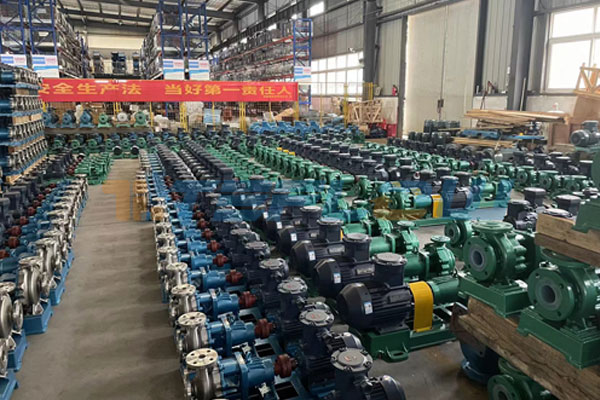
When selecting materials for sodium hypochlorite transfer pumps, it is crucial to consider factors such as corrosiveness, temperature, pressure, fluid characteristics, and economic feasibility. Rational material selection ensures the safety, stability, and cost-effectiveness of the transfer process. Choosing appropriate materials based on specific operating conditions maximizes the service life of transfer pumps, enhances production efficiency, and reduces maintenance costs.





 +86 18130251359
+86 18130251359 teflowpumps@tlpumps.com
teflowpumps@tlpumps.com

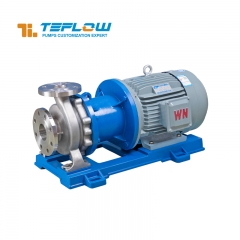
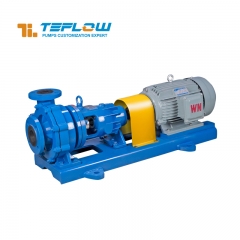
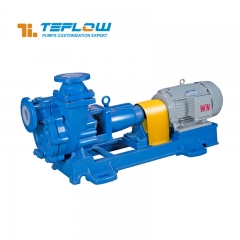
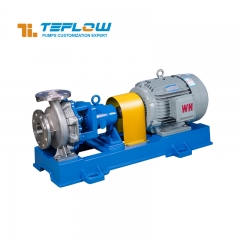








 +86+0563-5093318
+86+0563-5093318
